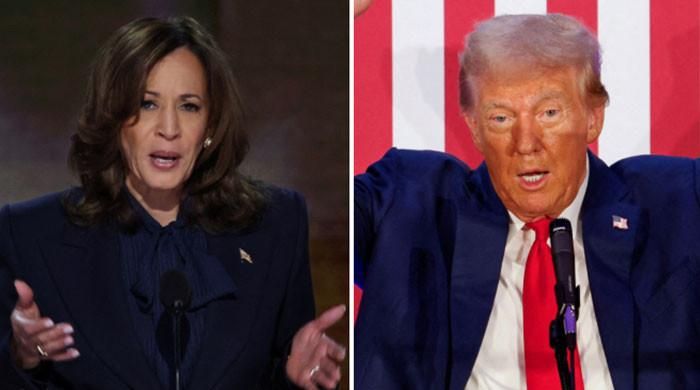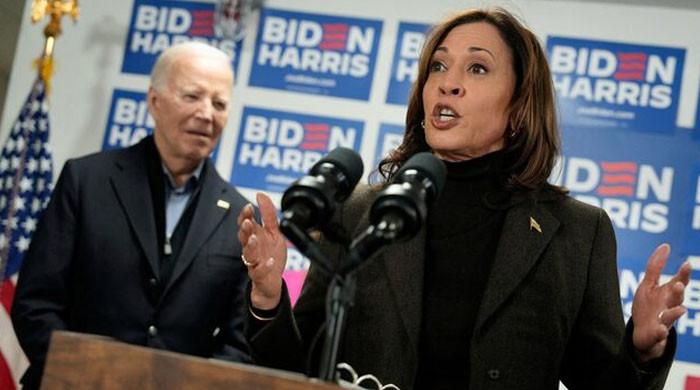WASHINGTON: US presidential candidate Kamala Harris appears to be taking a leaf out of rival Donald Trump's book by focusing on evoking emotion rather than explaining policy on the campaign trail, and hopes her appeal to “joy” will help her beat the Republican at his own game.
Since replacing President Joe Biden at the head of the Democratic Party ticket in July, Harris has had to carry out her campaign at full speed, just months before the November elections.
With few exceptions, he has eschewed news conferences, interviews and lengthy policy debates. Instead, his official coronation at the Democratic National Convention focused on one ever-present theme: “joy.”
And the good-vibe approach seems to be working.
While Biden has fallen behind Trump, Harris has re-entered the race, with the two candidates running neck-to-neck in six key states, according to the latest polls.
Experts say that shifting to a primarily emotional message is an effective political strategy.
“We think of ourselves as thinking like scientists, carefully and objectively weighing the evidence and facts before us,” said Jennifer Mercieca, a communications professor at Texas A&M University.
“But we're really thinking like lawyers, defending our preferred position.”
The appeal to so-called emotional truths — things that “seem true,” even if they are not based on empirical evidence — is powerful, he said.
“When speakers try to persuade based on affective truth, it is harder to hold them accountable because it is difficult to argue against a feeling.”
Moving away from Biden
The shift from the Biden campaign — which made a case largely based on Trump being “a threat to democracy” — has been striking.
Since leaving school, a New York Times/Siena The poll “found that anger and resignation had been declining among voters in both parties, while joy had been increasing.”
Mashail Malik, an adjunct professor of government at Harvard University, said Harris's shift can be explained by the “exhaustion” that negative emotions can cause.
“I think fear was failing to fully inspire a broader spectrum of potential Democratic voters, many of whom are exhausted by the negativity that had pervaded the news cycle,” he said.
“The message about joy seems designed to alleviate some of this exhaustion and offer an alternative to fear.”
Plus, he argues, it offers a way for Harris to differentiate herself from her current boss Biden.
This becomes much more difficult when we focus on the problems, rather than the atmosphere.
For example, when it comes to US support for Israel’s war in Gaza, Harris has sought to satisfy Democratic critics primarily by changing her tone on the massive loss of Palestinian civilian life. However, that is unlikely to heal the small but significant rift that exists in the party.












